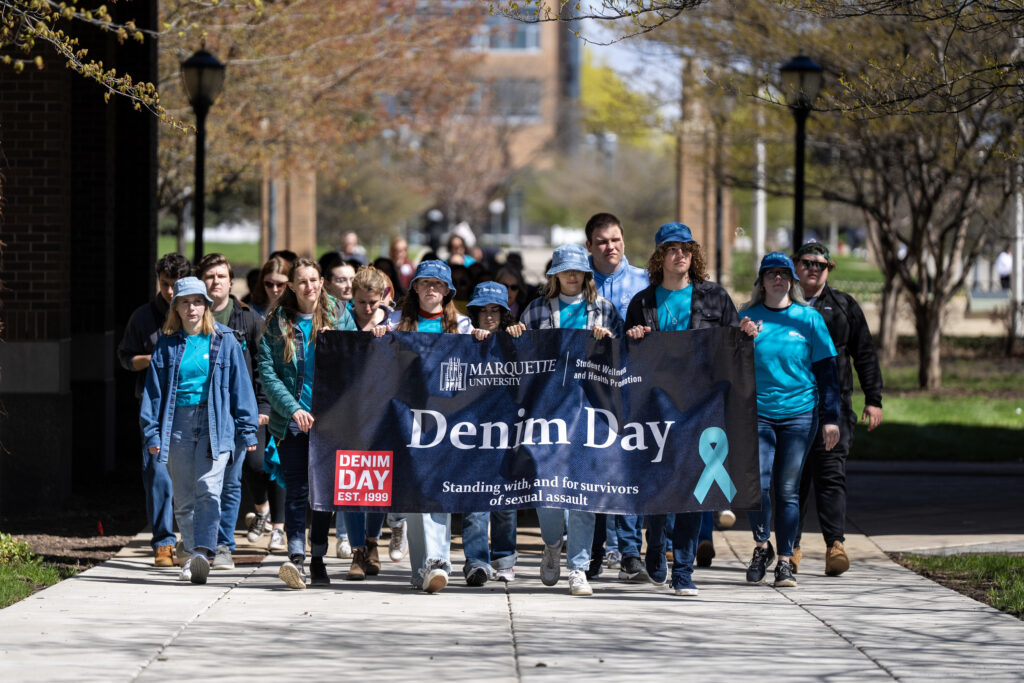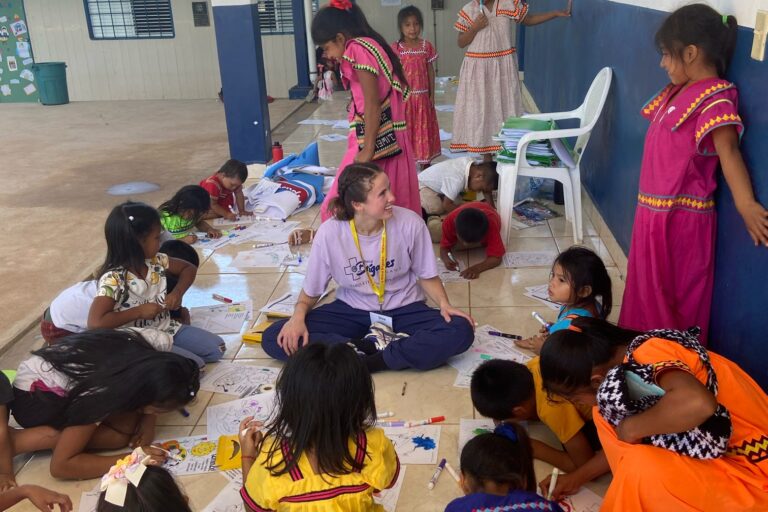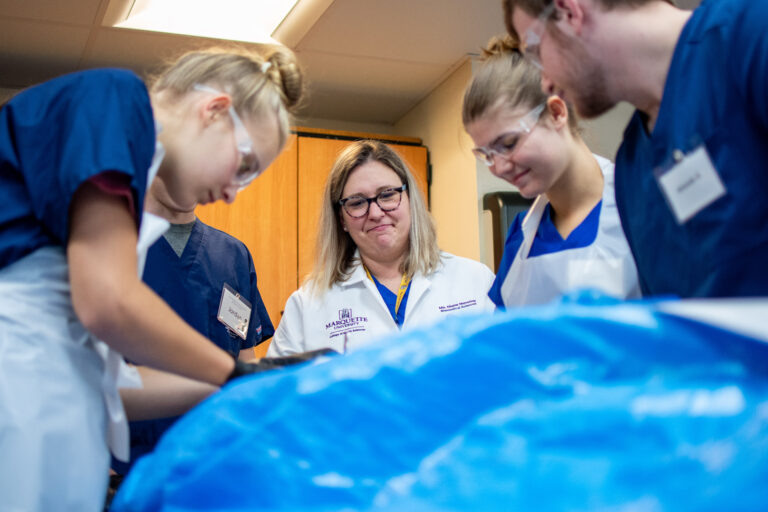
It takes only one hour to complete, and it could save a life. Since 2017, Marquette University has acted on its commitment to making campus environments safer by requiring all second-year students to complete Bringing in the Bystander, an intervention training program used by hundreds of campuses worldwide that focuses on sexual and domestic violence awareness.
“The program is designed to empower someone who recognizes when something is wrong to take action,” says Estelle Welhouse, lead victim advocate.
Offered in the spring semester and provided through the Center for Student Wellness and Health Promotion, programs like Bringing in the Bystander foster important qualities within students including the motivation to help, the safety and well-being of self and others, and conflict resolution skills.
Students in the program learn how to intervene in cases of sexual relationship violence, identify inappropriate sexual behaviors and relationship violence, intervene in situations using one’s personal strengths, and more.
“Through the five different response options — distract, delegate, delay, direct and document — someone is able to choose the best response for a potentially harmful situation,” Welhouse explains.

Facilitators also equip students with a list of resources available in the case of a mental health emergency, including Marquette’s Advocacy Services, Counseling Center and Medical Clinic.
Students who don’t go to a training session receive a hold on their bursar account, rendering them unable to register for next semester’s classes until they complete the training. Bernadette Heitschmidt, director of the CSWHP, says that by requiring bystander training for all students, Marquette can be a safer and closer-knit community.
“This is how strongly Marquette values this training, as well as other trainings required of our students,” Heitschmidt says.
A facilitator’s perspective

Undergraduate employees or peer wellness educators at the CSWHP facilitate two kinds of training: the bystander training and Red Watch Band training, a program that teaches first-year students the signs and symptoms of acute intoxication and how to intervene.
Charlie McClintock is a senior psychology major and peer wellness educator. Since high school, he knew that a career in the mental health field was in his future. The heartbreaking loss of his brother to suicide the summer before his freshman year at Marquette heightened his desire to be a mental health advocate.
“I used to blame myself for not noticing his signs despite all my advocacy work and praise for mental health. Since then, I’ve come to understand that I can’t hold myself responsible, but I can promise him to help others,” McClintock says.
After feeling unsupported in his own mental health struggles, he was drawn to help others who face similar situations.
“I started to understand the depth of what it means to be mentally healthy; it takes much more than forcing yourself to be positive as much as you can,” McClintock says. “And, unfortunately, as a college student, there have been numerous times when people very close to me have been affected by sexual violence.”
McClintock’s work with the CSWHP’s sexual violence prevention team helped develop his understanding of others’ experiences with sexual violence and prevention.
“Bringing in the Bystander has helped me personally to gain a deeper understanding of rape culture and how it ranges from assault to jokes and comments,” McClintock says. The program is thought-provoking; it influences us to reflect and acknowledge what can be done to right the wrongs.”
Marquette University strongly encourages any student or employee who has been impacted by sexual harassment, sexual violence, or sex discrimination to seek prompt assistance from the university. Visit Marquette’s sexual misconduct website for reporting options, support resources, and information about confidential support.


